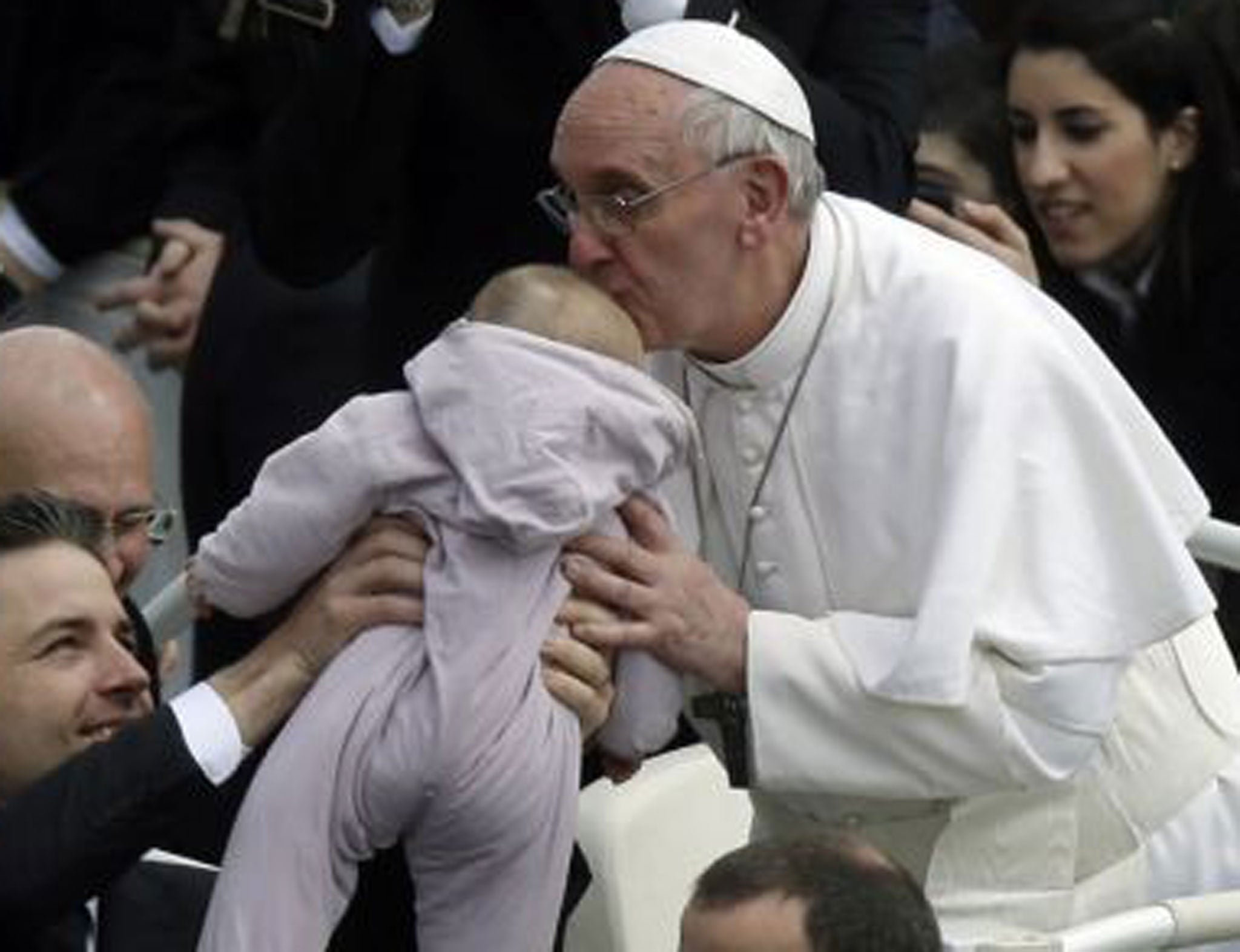Easter Sunday: New Pope and Archbishop strike profound notes on Christianity's biggest day
Pope Francis calls for peace in Syria and the Korean peninsula

Pope Francis today used his first Easter Sunday message to pray for peace in war-torn Syria and on the tense Korean Penisnula.
Speaking to around 250,000 people in St Peter's Square, the new pontiff also prayed for Nigeria, "where great numbers of people, including children, are held hostage by terrorist groups."
He also condemned human trafficking as "the most extensive form of slavery in this 21st century".
The Syrian civil war, now in its third year, is thought to have killed more than 70,000 and displaced one million. Bashar al-Assad is still clinging to power against determined rebel forces.
Francis asked: "How much blood has been shed? And how much suffering must there still be before a political solution to the crisis will be found?"
"On the Korean peninsula, may disagreements be overcome and a renewed spirit of reconciliation grow."
This was a reference to North Korean leader Kim Jong-un's declaration that the reclusive communist state is now entering a “state of war” with its neighbour, South Korea.
Francis continued the theme of apparent humility which has marked his term so far, touring St Peter's Square in his open-top "popemobile," kissing babies and waving to cheering crowds who waved flags from around the world.
This follows his renunciation of much of his private accommodation, his call for a "poor church for the poor" and his visit to a Rome prison on Thursday, where he washed and kissed the feet of inmates.
After he ascended to the papacy, he phoned his local newsagent in Buenos Aires - where, as archbishop, he used to travel by bus - to cancel his own newspaper deliveries.
During his message, Francis prayed God would reach "every house and every family, especially where the suffering is greatest, in hospitals, in prisons."
He said: "What a joy it is for me to announce this message: Christ is risen! I would like it to go out to every house and every family, especially where the suffering is greatest, in hospitals, in prisons.
"Most of all, I would like it to enter every heart, for it is there that God wants to sow this Good News: Jesus is risen, there is hope for you, you are no longer in the power of sin, of evil! Love has triumphed, mercy has been victorious! The mercy of God always triumphs! "
In the UK, the Archbishop of Canterbury Justin Welby - another Easter debutant- warned against society's tendency to seek heroes in its leading figures and institutions.
The Most Rev Welby said ignoring complexity and humanity left us "unreasonably disappointed" with everyone "from politicians to NHS, education to environment."
He told worshippers at Canterbury Cathedral that setting people or institutions up to heights where they can only fail was "mere cruelty".
The Archbishop, who was enthroned as head of the Church of England earlier this month, said: "A political party gets a new leader and three months later there is comment about disappointment.
"An economy suffers the worst blow in generations with a debt crisis and economic downturn, and the fact that not everything is perfect within five years is seen as total failure.
"Complexity and humanity are ignored and we end up unreasonably disappointed with every institution, group and policy, from politicians to NHS, education to environment.
"Put not your trust in new leaders, better systems, new organisations or regulatory reorganisation.
"They may well be good and necessary, but will to some degree fail.
"Human sin means pinning hopes on individuals is always a mistake, and assuming that any organisation is able to have such good systems that human failure will be eliminated is naive."
He added: "Human fallibility recognised, God's sovereignty trusted - these are also the only stable foundation for human beings in society.
Mr Welby pointed to reports on Friday that only 40 per cent of churchgoers are convinced the new archbishop can resolve the problems of the Church of England.
"I do hope that means the other 60 per cent thought the idea so barking mad that they did not answer the question," he said.
"Holy Week and Easter show us the reality of God and of human beings. It is a reality that equips us for action in the world, action that is based on hope and realism, not on cynicism or fear."
Join our commenting forum
Join thought-provoking conversations, follow other Independent readers and see their replies
Comments
Bookmark popover
Removed from bookmarks